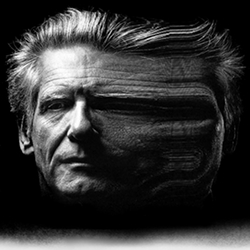Review: Man of Tai Chi (2013)

Cast: Tiger Hu Chen, Keanu Reeves, Karen Mok
Director: Keanu Reeves
Country: USA | China | Hong Kong
Genre: Action
Official Trailer: Here
Editor’s Notes: Man of Tai Chi opens this tomorrow, November 1st. For an additional perspective, please read Adrian’s review 80/100.
Making his directorial debut, Keanu Reeves stars in this genre crossing formal experiment. Presenting real-life martial arts expert Tiger Chen—who plays the eponymous role as the Man of Tai Chi—the film bonds together elements of the wuxia, crime film, and psychological thriller. There are changes in the formal style and dialogue within scenes that may be classified differently; moments of Shaw Brother’s like fighting sequences and Infernal Affairs (2002) like police-work are interlaced, making a complex yet non-cohesive film. While the film boasts many great parts, particularly within the fight choreography, The Man of Tai Chi (2013) is flawed by an overzealous and unimpressive plot.
Making his directorial debut, Keanu Reeves stars in this genre crossing formal experiment. Presenting real-life martial arts expert Tiger Chen—who plays the eponymous role as the Man of Tai Chi—the film bonds together elements of the wuxia, crime film, and psychological thriller.
The film documents a journey from innocence to malevolence. Keanu Reeves, as the bone-shaking Donaka Mark, brings Tiger Chen, an innocent Man of Tai Chi, into the world of paid fighting. Through online streams and live shows, Donaka exploits his fighter’s weaknesses, providing his viewers with an unparalleled exhibition of transformation. It’s conceivable that Donaka himself has gone through some kind of transformation—more background on Donaka would have, indeed, helped the film—that left an innocent man scarred forever as a killer. There is no turning back from this point, and the viewers are shown Tiger’s descent. Whether he will be revealed a killer—whether he is capable of killing—is the ultimate question.

While the Man of Tai Chi has been taught by his master to control his chi—not to let his chi control him—the more he allows the power of fighting to take over, the less he is able to remain at peace. Fighting first to raise funds in order to save his master’s temple, Tiger falls victim to Donaka’s exploits and eventually lets himself believe that power is control. At this point, Tiger begins to fight in order to feel the power and control that comes with pure, unadulterated strength—outer, physical strength which Donaka himself symbolizes. It’s not until he realizes his own downfall—which is a little rushed—that Tiger manages to slow himself down and control his chi, using energy to fight rather than strength.
The fight scenes are quite exhilarating, and there is plenty to please the die-hard martial arts film enthusiast, even if the martial arts aspect takes a backseat to the modern tale of exploitation and deceit. In fact, it’s quite intriguing to see a martial artist tackle modern realities such as paid fighting. Modern realities have supposedly tainted the innocence of true, traditional martial arts, and this film seeks to illustrate this. Watching a man of tai chi fight two enemies in slow motion under a strobe light can be quite exciting, especially since the fighting choreography resembles traditional martial arts films while the cinematic style reflects a modern image. It’s easy to see Tiger Chen becoming the next Jackie Chan or Jet Li.
The fight scenes are quite exhilarating, and there is plenty to please the die-hard martial arts film enthusiast, even if the martial arts aspect takes a backseat to the modern tale of exploitation and deceit.
While the main script is quite enjoyable, the crime and love stories are unnecessary. The romantic sub plot is thin, and while the actress is beautiful and lends the film a needed charm of innocence, there is too little holding it together. To this end, the final moments of the romance are more awkward than affirming. On the other hand, the crime story is too complex for its own good. With a middling performance by the starring actress, the tale of police tracking and police corruption doesn’t exactly fit thematically with anything else in the film. As a result, one finds oneself either enjoying the crime aspects, or waiting for them to end, rather than appreciating how the two genres may support each other.
Ultimately, the film’s theme that modernity and tradition may coexist—that there are many paths to the same destination—is reflected in the genre mixing plot. Unfortunately, the way in which the formal style changes does little to support this theme; instead it interrupts one’s experience. The effect of this is quite baffling, since much of the standalone sequences are quite well articulated and synthesize figure movement, camera movement, and sound quite well. It’s only when the film attempts to be more than it is that everything breaks loose. In the end, if viewers keep this in mind and choose not to question such changes, the film is quite entertaining.
Related Posts
![]()
Kamran Ahmed
![]()
Latest posts by Kamran Ahmed (see all)
























